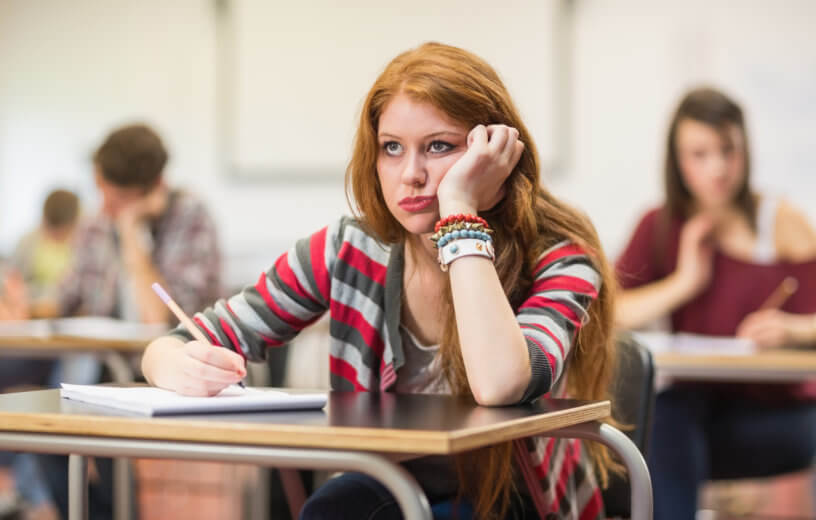NEW HAVEN, Conn. — Educators may want to reconsider ways to keep kids engaged and upbeat when it comes to going to school, according to new research. A national survey of 21,678 current high school students reveals that nearly three-quarters harbor negative feelings about their educational experience.
Researchers say the single most reported answer to a question asking how a student usually feels while at school was “tired,” followed by “stressed” and “bored.”
In addition to the nationwide study, led by researchers at the Yale Center for Emotional Intelligence and the Yale Child Study Center, the authors conducted an “experience sampling” study of 472 high school students in Connecticut. Those students were asked to report their feelings at specific moments throughout the school day. They reported negative feelings 60% of the time.
“It was higher than we expected,” says study co-author and Yale research scientist Zorana Ivcevic in a university release. “We know from talking to students that they are feeling tired, stressed, and bored, but were surprised by how overwhelming it was.”
The students came from a variety of demographics and locations; urban, suburban, and rural school districts across all 50 states. Pupils from both public and private schools were surveyed. The findings held true across all demographics, but girls were slightly more negative than boys on average.
In the first online survey, students were asked to provide a range of positive and negative feelings they experience during school hours. They also rated how often they felt 10 separate emotions on a scale of 0 to 100: proud, happy, joyful, cheerful, lively, sad, angry, miserable, afraid, scared, bored, and stressed.
The most common emotion the students reported in the open-ended responses was tired, at 58%. All of the additional most-reported emotions were slightly below 50%: stressed, bored, calm, and happy. These results supported the rating scale test findings — students reported feeling stressed (79.83%) and bored (69.51%) most frequently.
Ivcevic pointed out that even when some positive emotions (calm, happy) were reported, they were vague in comparison to the negative emotions. Virtually no students reported positive emotions like “interested” or “curious.” These emotions, according to Ivcevic, would have shown a higher level of engagement predictive of more enduring and deeper learning.
Ivcevic and her team also added that some of the negative feelings reported could be interconnected. Tiredness, for example, often contributes to or is a symptom of boredom or stress.
The researchers also said that students’ emotions at school have a huge impact on their attention, and therefore, their ability and willingness to challenge themselves and learn.
One antidote to these negative feelings toward school could be adjusting the start time for high schools. The American Academy of Pediatrics has long recommended that high schools start at 8:30 am at the earliest. The vast majority start earlier.
The study is published in the Journal of Learning and Instruction.
